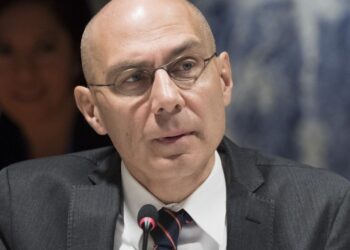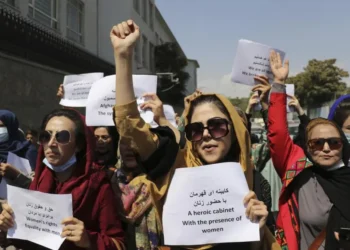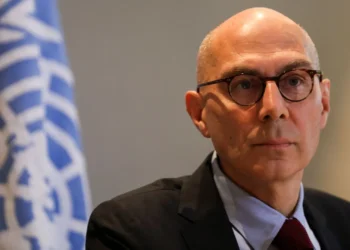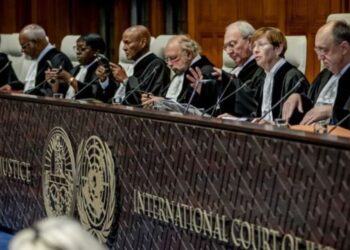Human Lives Human Rights: A former UN official on Wednesday called on the United Arab Emirates to release the prominent pro-democracy and free speech activist Ahmed Mansoor from jail.
Mary Robinson, the former UN human rights commissioner, said that Mansoor “is regarded by the human rights community as a brave human rights defender,” during a speech addressing a climate event at the Expo 2020 fair in Dubai.
Mansoor, a 51-year-old Emirati engineer, poet, and father of four was arrested in March 2017 in relation to his human rights advocacy in the UAE.
In January, Human Rights Watch (HRW) published a damning report detailing new information regarding the conditions under which Mansoor is being held and the conduct of his 2018 trial.
However, the UAE rejected the HRW report and adamantly denied any mistreatment of Mansoor.
Robinson urged the UAE to release Mansoor as “this would be a timely move also called for by the parliament of the European Union”.
In December 2018 his final appeal was rejected.
In September, the European Parliament also called on the UAE to immediately release three prominent human rights defenders – including Mansoor – and urged EU member states to boycott Dubai Expo in order to “signal their disapproval” of rights violations.
Sheikha Latifa
Robinson also said that in 2018, she was “tricked” when she was invited to Dubai to check on Sheikha Latifa bint Mohammed al-Maktoum, the daughter of Dubai’s ruler.
A photo of Robinson sitting with Latifa, who had tried unsuccessfully to escape her family, was released to the media. Latifa was reportedly kidnapped by her family and brought home on a boat from international waters off India. Her family said that was a rescue mission.
Robinson, the first female president of Ireland, told BBC in February that she had not asked Latifa about her situation.
In June, Latifa released a statement confirming she is now free to travel abroad.
The UAE enjoys strong relations with the West and normalised ties with Israel last year in a US-brokered agreement.
In the past years, other rights groups have also demanded that the UAE release a number of political prisoners who were jailed during the country’s infamous “UAE 94” trial.
The 2013 mass trial involved 94 people who were accused of trying to overthrow the Emirati government, a charge the defendants vehemently denied.
It resulted in the conviction of 69 people – eight in absentia – who received sentences of up to 15 years in jail.
According to the HRW report, Mansoor was seized from his home and was bundled into a 4×4 by men in black balaclavas.
He was taken to an unknown place, his family had no idea where he was, and for a year had virtually no contact with him.
He was then denied access to a lawyer of his choosing.
Nearly a year after he was detained, he was brought to court, sentenced to 10 years in jail, and fined one million dirhams ($272,300) after being convicted under anti-terror laws of “insulting the status and prestige of the UAE and its symbols including its leaders” and “seeking to damage the relationship of the UAE with its neighbours by publishing false reports and information on social media”.


















